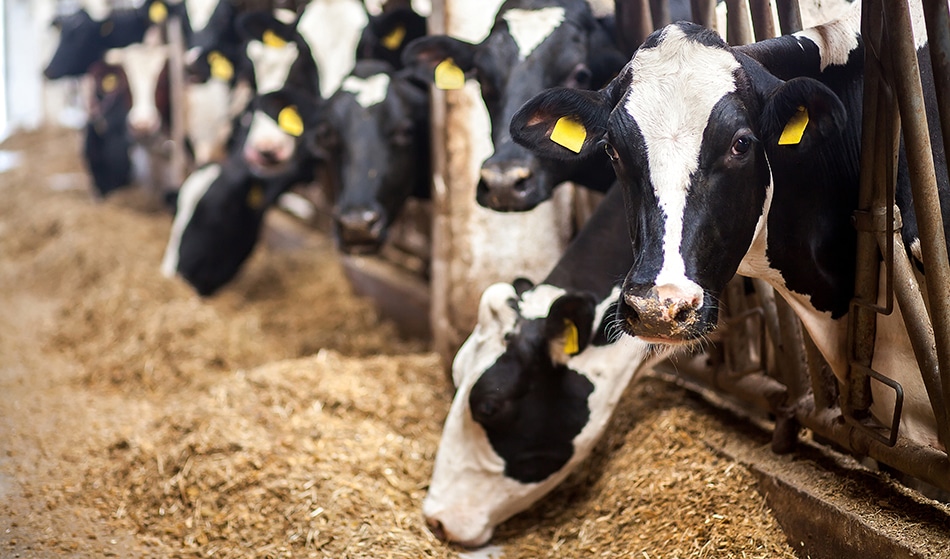FAO Feed Safety Microbiological Testing
The Food and Agriculture Organization (FAO) of the United Nations plays a critical role in ensuring global food safety, particularly for agricultural products and animal feeds. FAO Feed Safety Microbiological Testing is a specialized service that ensures the microbiological quality of feedstuffs to prevent contamination with harmful microorganisms such as Salmonella spp., E. coli, Listeria monocytogenes, and others. This testing is essential for safeguarding animal health and ensuring food safety at every stage of production.
The primary goal of FAO Feed Safety Microbiological Testing is to identify potential risks early in the supply chain. By conducting comprehensive microbiological analyses, we aim to prevent contamination that could lead to diseases in livestock or humans consuming contaminated products derived from such feeds. This service is particularly important for companies dealing with raw materials like grains, oilseeds, animal by-products, and other ingredients used in feed formulations.
Our laboratory employs advanced microbiological methods and techniques recommended by FAO guidelines and international standards to ensure accuracy and reliability of results. The testing process involves multiple steps including sample collection, transport, preparation, inoculation into selective media, incubation, and identification using biochemical tests or molecular diagnostics when necessary.
For raw materials sourced from various regions around the world, ensuring that they meet stringent microbiological standards is crucial. Our laboratories follow internationally recognized protocols such as ISO 6814:2013 for quantitative bacteriological examination of feedstuffs and ISO/TS 20759-1:2012 for enumeration methods for Salmonella in animal feedingstuffs. Compliance with these standards guarantees consistency across different batches and suppliers.
Our team of experienced microbiologists uses state-of-the-art equipment to perform tests that go beyond basic presence/absence detection. We offer quantitative analyses which provide precise counts of pathogenic bacteria present in feed samples, enabling our clients to make informed decisions about quality control measures needed throughout their supply chain.
Additionally, we conduct trend analysis over time periods specified by our customers or regulatory bodies like the European Commission. This helps track any changes occurring within specific geographic areas or among particular suppliers, allowing proactive adjustments in sourcing strategies if necessary.
The results from FAO Feed Safety Microbiological Testing play a vital role not only in maintaining high standards of animal nutrition but also contribute to overall public health by reducing the risk associated with zoonotic diseases spread through contaminated feeds. Our clients benefit greatly from this service as it supports their compliance efforts towards various national and international regulations regarding feed safety.
By providing accurate, reliable data based on robust scientific methods, we help build trust between suppliers, processors, distributors, and end-users of agricultural products and animal feeds. With our expertise in FAO Feed Safety Microbiological Testing, your company can ensure that its products meet the highest standards set forth by international organizations like FAO while also complying with local legislation.
Applied Standards
| Standard | Description |
|---|---|
| ISO 6814:2013 | Quantitative bacteriological examination of feedstuffs; microbiological quality and safety requirements. |
| ISO/TS 20759-1:2012 | Enumeration methods for Salmonella in animal feedingstuffs. |
| EN ISO 6814:2013 | Qualitative and quantitative bacteriological examination of feedstuffs; microbiological quality and safety requirements. |
| IEC 62751-2:2012 | Microbiological safety of animal feeding stuffs - Part 2: Sampling, transport, storage, preparation for analysis, and analytical methods. |
Benefits
Implementing FAO Feed Safety Microbiological Testing brings numerous advantages to agricultural and animal feed companies:
- Enhanced Product Quality: Ensures that only safe and high-quality feedstuffs are used, thereby maintaining the integrity of your product.
- Regulatory Compliance: Helps meet stringent regulatory requirements set by FAO and other relevant bodies worldwide.
- Risk Management: Identifies potential risks early in the supply chain, allowing for timely interventions to mitigate hazards.
- Increased Customer Confidence: Demonstrates commitment to product safety and reliability, enhancing customer trust and satisfaction.
- Competitive Edge: Differentiates your company from competitors by offering superior quality assurance practices.
- Promotes Sustainable Practices: By ensuring safe feeds are used in animal husbandry, this supports sustainable farming practices that contribute positively to the environment.
Environmental and Sustainability Contributions
The practice of FAO Feed Safety Microbiological Testing contributes significantly to environmental sustainability by promoting responsible use of resources:
- Reduction in Waste: Proper testing ensures that only safe feedstuffs are used, minimizing waste from contaminated materials.
- Sustainable Resource Utilization: By preventing the introduction of harmful microorganisms into livestock diets, we support efficient use of available agricultural resources.
- Biodiversity Preservation: Ensuring that animals receive safe feed helps maintain their health and well-being, which in turn supports biodiversity within farming ecosystems.





